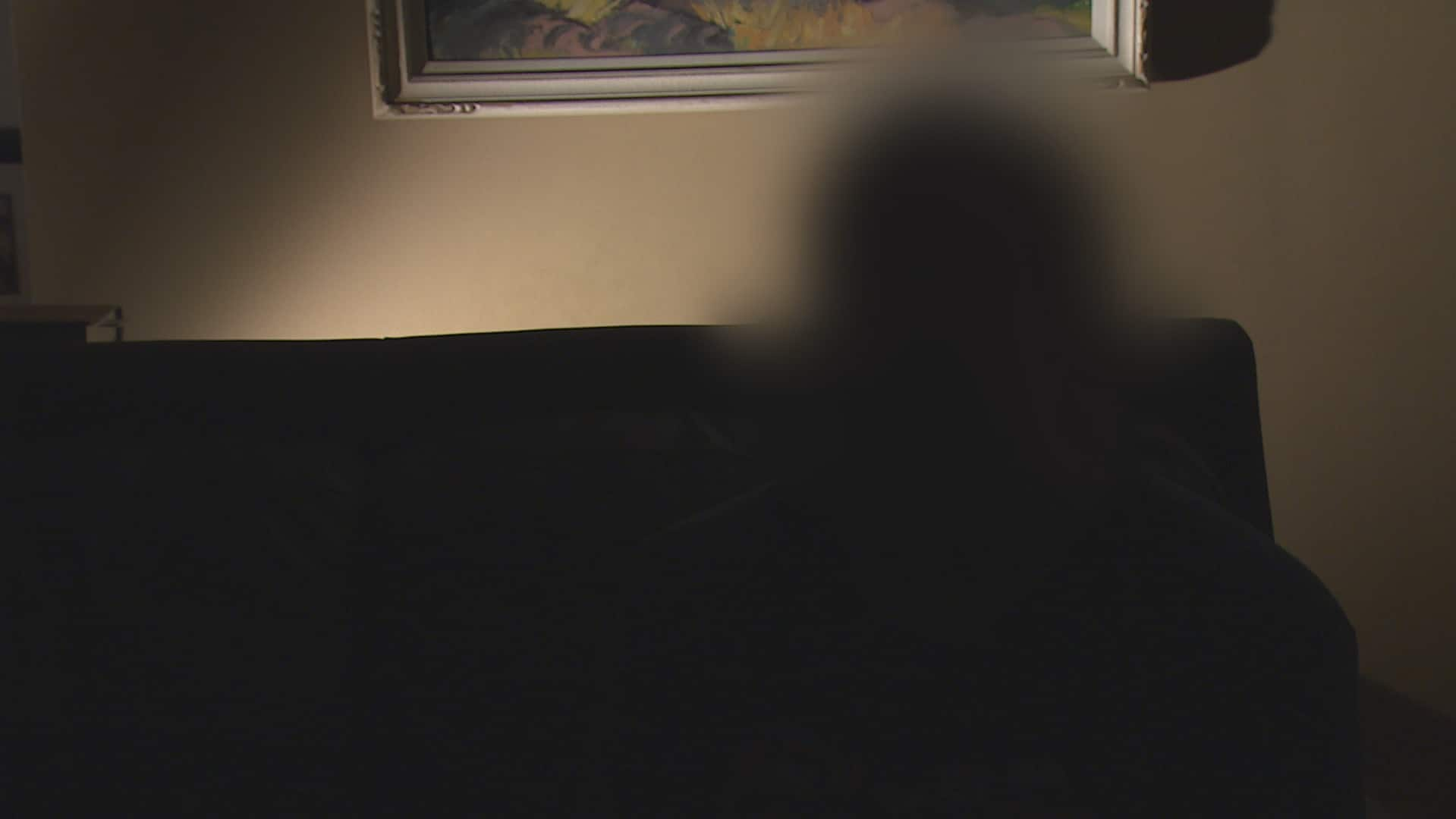How teacher librarians interpreted GTA school board’s controversial book-weeding process

Teacher librarians are speaking out about their experiences with a controversial new equity-based book-weeding process after Ontario’s Education Minister ordered their school board to stop the practice last month.
The minister’s direction came in the wake of a CBC Toronto investigation that found the new process, intended to ensure library books are inclusive, seemingly led some Peel District School Board (PDSB) schools to remove thousands of books based on the criteria they were published in 2008 or earlier. This first step in the process was intended to weed out damaged, outdated and uncirculated books.
The four teacher librarians CBC Toronto spoke to all said they support removing books that could cause harm to students. But their interpretations of the new process illustrate how miscommunication likely led to an inconsistent approach to weeding school collections.
Two of the educators thought the process was unclear, rushed, and left them feeling pressured to weed out a large number of books they say they haven’t received enough funding to replace. While others, like Evelyn Reford, said the process was straightforward and they got most of the money they asked for to buy new books.
“We were told to use our professional judgment,” said Reford. “If nobody’s reading it then get rid of it.”
For example, she says she’d never weed out Diary of a Wimpy Kid — which was published before 2008 — because it’s so popular with her students at Green Glade Senior Public School in Mississauga.
Another teacher librarian shared similar sentiments. They thought the instructions were clear, but they were disappointed the in-person training sessions weren’t mandatory for principals so that everyone was on the same page about what that the teacher librarian considers a valuable new weeding process.
CBC Toronto is not naming that teacher librarian because they were not authorized to speak about the process, nor two other teacher librarians — who believe the process was rolled out poorly — because they fear reprisal for speaking out.
WATCH | How teacher librarians say they weeded their libraries:
Featured VideoCBC Toronto spoke with a handful of teacher librarians who share differing views on how the Peel District School Board rolled out a controversial new equity-based book weeding process last spring.
The two other teacher librarians say they were told the weeding was primarily based on publication date, unless circulation data showed the book was very popular with students.
“We would have to defend [keeping] it,” said the first of those teacher librarians. “They weren’t giving us a lot of leeway.”
Generally, weeding books from a library isn’t new. Libraries across the country follow weeding plans to dispose of damaged, mouldy and outdated books and to make sure their collections remain a trusted source of current information.
The PDSB introduced an equity-based weeding process intended to take that standard process further last spring.
Its “equitable curation cycle” was introduced to support Directive 18 from the Minister of Education based on a 2020 Education Ministry review and report on widespread issues of systematic discrimination within the PDSB. Directive 18 instructed the board to complete a diversity audit of schools, which includes libraries.
2,000 of 6,500 books weeded
The cycle is described in a board document as “a three-step process that holds Peel staff accountable for being critically conscious of how systems operate, so that we can dismantle inequities and foster practices that are culturally responsive and relevant.”
Reford removed just over 2,000 books from her library collection of nearly 6,500 books through Step 1 of that process, which lasted from early spring until the end of June.

“Although I understand people’s emotional reaction to the idea of books being taken from libraries, they’re only being taken from libraries because they’re not serving our population anymore,” said Reford.
But the two teacher librarians who weeded their libraries using the 2008 publication date criteria alongside circulation data, both say they struggled with removing some titles.
“The hardest part was some of the non-fiction books, like some of the animal books,” said the first teacher librarian.
“I didn’t quite understand why I had to get rid of those.”
That teacher librarian weeded out roughly 20 per cent of their collection and the second teacher librarian removed more than half of their library’s books.
Criteria more than publication date, circulation: board
Bernadette Smith, superintendent with the board’s innovation and research department, says the messaging to teacher librarians was not to just get rid of books published before 2008 unless they were popular.

Instead, she says, those were factors to be considered alongside: board priorities, affirming student identities and the widely used “MUSTIE” acronym from Canadian School Libraries. The letters stand for criteria librarians are supposed to consider, and they include:
- Misleading – information may be factually inaccurate or obsolete.
- Unpleasant – refers to the physical condition of the book, may require replacement.
- Superseded – book been overtaken by a new edition or a more current resource.
- Trivial – of no discernible literary or scientific merit; poorly written or presented.
- Irrelevant – doesn’t meet the needs and interests of the library’s community.
- Elsewhere – the book or the material in it may be better obtained from other sources.
“If there is a book on animals and it fits any one of the criteria … then the professional judgment of that teacher librarian will kick in, as well as conversations with colleagues, with the administration, and the decision is made,” said Smith, in an interview.
“If we want our resources to be reflective and current and relevant, it’s not about the quantity of books, it’s about the quality.”
Anti-racist and inclusion audit cancelled
The PDSB is no longer moving forward with the next step of its new weeding process after being told to stop by Education Minister Stephen Lecce last month.
WATCH | Students express concern about the removal of school library books:
Featured VideoHigh school students in Peel Region are expressing concern about a new equity-based process that has led some schools to remove thousands of library books published before 2008.
Step 2, the anti-racist and inclusion audit, would have seen staff review books to make sure they don’t “perpetuate or reinforce racist content, stereotypes or promote deficit-thinking.”
Instead, the board says it will concentrate on buying new books.
“Despite potential cutbacks and drawbacks, really what this has done is highlighted the importance of maintaining fulsome libraries,” said Paul Da Silva, associate director for school improvement and equity.
“So we’re committed to doing that.”

Even though the board’s anti-racist and inclusive audit has been cancelled, Smith says teacher librarians are expected to continue weeding books as they normally do each year — but now through an equity lens.
“We want to ensure that when a student picks up a book that it’s not causing harm, it’s not representing a group of people in an offensive way or a misrepresented way,” she said.
CBC Toronto asked Lecce’s office whether this approach is in line with the education minister’s direction and if the PDSB has fulfilled the requirements of Directive 18.
In a statement, a spokesperson from the education minister’s office reiterated its direction to the board.
“Our expectation going forward is that the Peel District School Board use common sense to add material to their libraries that reflects the diversity of their community while maintaining their existing classic Canadian literature and historical novels,” said spokesperson Isha Chaudhuri.
Will library shelves be filled?
Da Silva told CBC Toronto all PDSB schools submitted requests for library replenishment funds and every school will be granted funding.
Reford asked for $4,000 and said she was granted $3,632 to buy new books on top of the $5,000 budget her school had already provided for the library this year. Another teacher librarian who shared similar views on the process said they received just over 75 per cent of the funds they requested.
As for the other two teacher librarians, the first is receiving just under a third of what they asked for, and the second is receiving just shy of half of the funding they requested.

“It’s going to take a lot of money to basically replenish what we’ve lost — because we lost a lot,” said the second teacher librarian.
Both said their approved funds won’t come close to replacing the books they weeded.
“This has happened, there’s no turning back on it,” said the first teacher librarian. “You can’t cheap out on this.”




